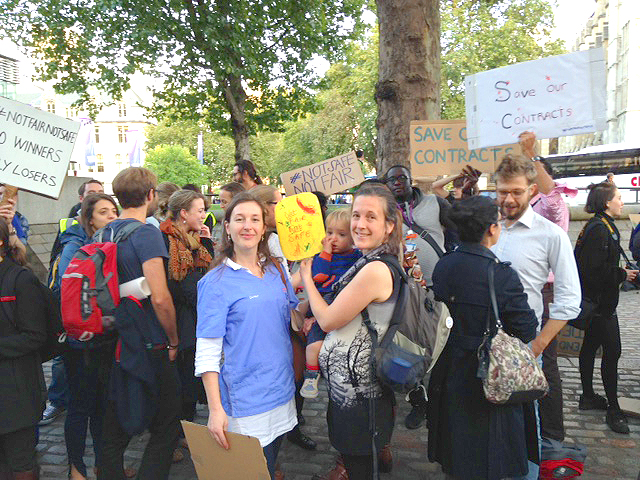
CHAIR of the British Medical Association Dr Mark Porter has declared the BMA’s full support for the junior doctors’ decision to ballot for industrial action.
The junior doctors are balloting as part of their struggle against the Tory government’s attempts to impose a new contract on them, which cuts their pay by up to 30 per cent and forces them to work a 90-hour week.
Porter said on Monday: ‘This is a generational moment for the medical profession. The threat to impose a new contract on junior doctors in England goes beyond one country or one branch of practice – it’s an attack on the values we all cherish. Junior doctors have found themselves forced to ballot for industrial action. The action they propose is in defence of us all, and must have our united support.
‘As a profession, we need doctors who are safe, highly motivated, and able to deliver the best possible care to patients. If the government presses ahead with imposition, it will be clear to everyone that they do not share these fundamental values. On Monday, in the wake of the vote to ballot on Saturday, NHS Employers cancelled all their meetings with junior doctors about the new contract.
‘The BMA will be meeting the health secretary Jeremy Hunt later this week to discuss how we might – even at this late stage – be able to make meaningful progress in agreeing a contract, which protects patients and the junior doctors who care for them. We have always wanted to negotiate a safe and fair contract for members, but it has taken more than two months for the government and employers to move their position.
‘The BMA junior doctors committee has been clear about the assurances which junior doctors want: the ball is in the government’s court. If Mr Hunt at last wants to enter constructive negotiations, we welcome it. But he must understand that neither patients nor doctors of any branch of practice can afford to live with the consequences of this contract.
‘As currently proposed, it would be:
• A contract written by employers, for the benefit of employers, with no longer any incentive to make hours more humane and safe
• A contract with inequality written into its heart, where doctors who carry out vital research, or expand their skills overseas, would see their pay lag behind colleagues
•A contract where the intensity of work no longer matches pay, leading to an even deeper recruitment crisis in specialties such as emergency medicine and worse care for patients.
‘The decision to ballot for industrial action has gained overwhelming support from across the profession, demonstrated most recently over the weekend by the unprecedented number of doctors applying to join the BMA.
‘The ballot will be of junior doctors in England. The governments in Scotland and Wales have wisely decided not to impose a new contract, and we await the decision from Northern Ireland. But whether you are part of the ballot and possible industrial action or not, this is everyone’s fight.’